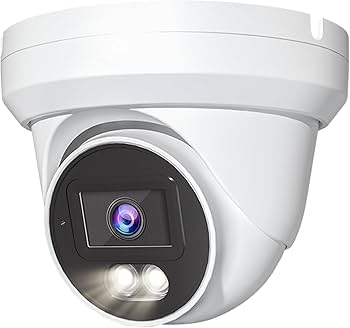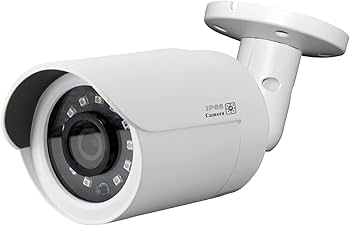When you want a camera for outdoor use, you need one that can handle weather. Rain, dust, and dirt should not stop the camera from working. This is why many cameras come with an IP rating. It tells you how strong the camera is against water and dust.
What Does IP Rating Mean?
IP stands for Ingress Protection. It tells how well a device is protected against dust and water. The rating has two numbers. The first number is for dust protection. The second number is for water protection.
For example, in IP66:
- The first number 6 means full dust protection.
- The second number 6 means strong water protection.
In IP67:
- The first number 6 means full dust protection too.
- The second number 7 means it can handle water better than IP66.
Why Are IP66 and IP67 Cameras Popular?
Both IP66 and IP67 cameras can work outdoors. They protect the camera from dust and rain. This makes them good for places with bad weather.
Many people use these cameras for security outside their homes or offices. The cameras keep working in rain, snow, or dust storms.

Credit: www.amazon.com
IP66 Rating Explained
IP66 cameras have the highest dust protection. No dust can get inside the camera. This keeps the camera clean and safe inside.
For water, IP66 means the camera can handle strong jets of water. It can survive heavy rain or water sprays. But it should not be kept underwater.
Where To Use Ip66 Cameras?
- Outdoor walls and fences
- Near pools or fountains where water may splash
- Places with strong wind and dust

Credit: www.amazon.com
IP67 Rating Explained
IP67 cameras have the same dust protection as IP66. They are also dust tight.
But they have better water protection. IP67 means the camera can be underwater up to 1 meter for 30 minutes. So, it is good for very wet places.
Where To Use Ip67 Cameras?
- Near swimming pools
- In places with heavy rain or floods
- On boats or near water bodies
Comparing IP66 and IP67 Cameras
| Feature | IP66 | IP67 |
|---|---|---|
| Dust Protection | Full protection | Full protection |
| Water Protection | Strong water jets only | Can be submerged up to 1m |
| Best for | Rain and splash | Wet and underwater spots |
| Price | Usually lower | Usually higher |
How to Choose Between IP66 and IP67 Cameras?
Think about where you will use the camera. If it will get wet sometimes but not underwater, IP66 is enough.
If the camera may go underwater or face heavy flooding, choose IP67. It offers better water resistance.
Your budget is also important. IP67 cameras are usually more costly because of extra protection.
Other Things to Check in Weatherproof Cameras
IP rating is important but not the only factor. Look for these features too:
- Resolution: Clear images help in better security.
- Night Vision: Useful for dark or low light areas.
- Wide Angle Lens: Covers more area with one camera.
- Durability: Check the material used in the camera body.
- Power Source: Battery or wired? Choose what fits your place.
How to Care for Your Weatherproof Camera?
Even with good IP rating, you should care for your camera. Here are tips:
- Clean the camera lens regularly to keep images clear.
- Check the camera housing for cracks or damage.
- Make sure cables and connections are tight and safe.
- Remove dirt or spider webs from around the camera.
- Test the camera after heavy storms to check function.
Examples of Weatherproof Camera Use
Many places use IP66 or IP67 cameras. Here are some examples:
- Home security outside the house
- Stores and shopping centers outdoor areas
- Parking lots to watch cars
- Factories or construction sites with dust and water
- Public parks and gardens
Frequently Asked Questions
What Does Ip66 Rating Mean For Cameras?
IP66 means the camera is dust-tight and can handle powerful water jets without damage.
How Is Ip67 Different From Ip66 In Cameras?
IP67 allows temporary immersion in water, while IP66 protects against strong water jets only.
Can Ip66/ip67 Cameras Work In Heavy Rain?
Yes, these cameras are designed to operate well in heavy rain and wet conditions.
Are Weatherproof Ip66/ip67 Cameras Good For Outdoor Use?
Yes, they are built to resist dust, rain, and harsh weather outdoors.
Conclusion
Weatherproof cameras with IP66 or IP67 ratings keep working in tough weather. They protect against dust, rain, and even water.
Choose IP66 if your camera will face rain and dust. Choose IP67 if it may go underwater sometimes.
Always check other features too. And care for your camera well. This helps it last longer and work better.
With the right camera, you can watch outdoor places safely in all weather.